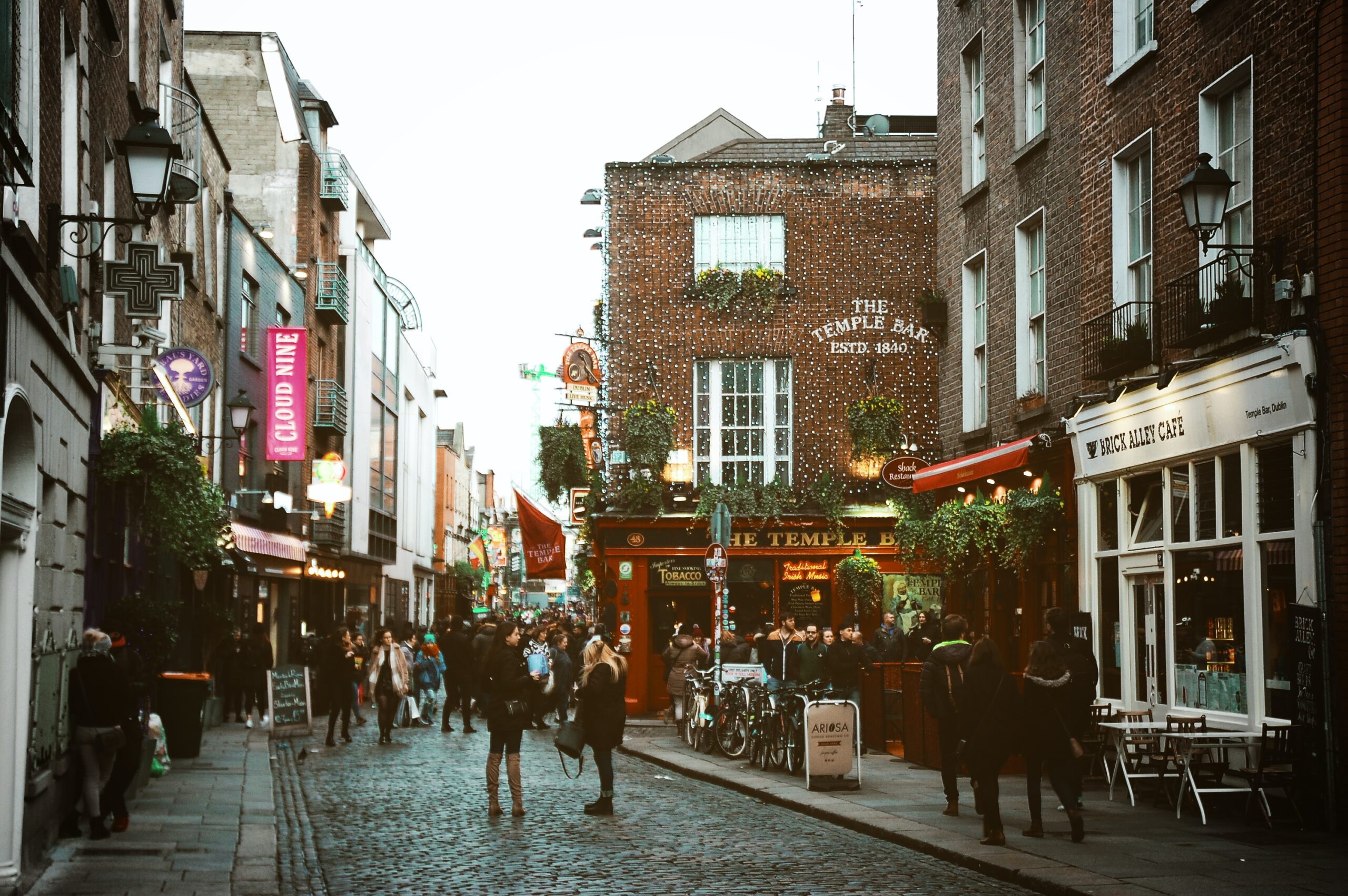11 February 2021
What did the Irish ever do for us?
By Paul Branch
 The English are blessed with good neighbours with whom we share the depths of cultural and historical affinity, make full use of a common language and enjoy each other’s company. Being that much further away, and despite being separated by particularly cold expanses of water, we seem to get on better with the Irish than we do with our other British colleagues. Maybe it’s because we don’t share a hard border and therefore there’s no history of local unpleasantness arising from cattle rustling or land disputes. And you could argue that the Irish anyway are merely those Welsh and Scots who managed to earn their swimming proficiency badges from an early age, so deep down they’re all the same, aren’t they..? But No. In Ireland they breed a different brand of folk, with broader outlooks, a greater willingness to travel when the need arises, and definitely a different philosophical approach to life. They also built most of our transport and civil engineering infrastructure, and staffed many of the most essential and poorly paid jobs in the NHS from the outset. And in the South of that emerald isle they’ve shown themselves to be very forgiving as a former occupied colony.
The English are blessed with good neighbours with whom we share the depths of cultural and historical affinity, make full use of a common language and enjoy each other’s company. Being that much further away, and despite being separated by particularly cold expanses of water, we seem to get on better with the Irish than we do with our other British colleagues. Maybe it’s because we don’t share a hard border and therefore there’s no history of local unpleasantness arising from cattle rustling or land disputes. And you could argue that the Irish anyway are merely those Welsh and Scots who managed to earn their swimming proficiency badges from an early age, so deep down they’re all the same, aren’t they..? But No. In Ireland they breed a different brand of folk, with broader outlooks, a greater willingness to travel when the need arises, and definitely a different philosophical approach to life. They also built most of our transport and civil engineering infrastructure, and staffed many of the most essential and poorly paid jobs in the NHS from the outset. And in the South of that emerald isle they’ve shown themselves to be very forgiving as a former occupied colony.
To my great credit I have managed to stay heavily married to one for some considerable time now, and in that period I have benefited considerably from the experience, both spiritually and educationally. Take the following as an example of a lesson in obtuse reasoning. Aeons ago we would take car and kids across to Ireland to fulfil family obligations and avoid the dangers of summer sunshine elsewhere. On one visit we were out and about looking for some God-forsaken hamlet wherein lived a long-lost but never-forgotten cousin or an aunt or some such relation, and without the benefit of satnav in those far-off days and with no relevant maps we got lost. So we stopped for petrol and I tried to engage the elderly pump attendant in conversation.
“Can you tell me the best way to get to Ballybaloney from here please?” He looked at me, paused in his pumping, looked at the car and asked: “English?” Rather than state that the number plate and my accent were a bit of an obvious giveaway, and not wishing to make things more complicated by introducing my half-Italian genealogy, I merely nodded. Another pause as he peered inside the car. “Wife Irish is she?” Again I thought it best not to make the observation that the four small children in the back and a lady with the map of County Cork etched into her face would indeed provide evidence of her heritage, so a mumbled assent was enough. “Ballybaloney you say you want to get to?” A further pause, the car by now well filled. He sucked earnestly on his smouldering pipe as I handed over money (Irish punts in those days) and waited on the result of his deliberations. Finally: “Well now, if I were you, I wouldn’t necessarily start from here. But try asking at the pub back along the road where you turned off”.
And that was it. After initial disappointment we did try the pub along the road, got very precise instructions on how to get to where we were going, even to the exact cottage of the long-lost relative we were seeking, plus a few pints and a toasted sandwich, and off we went happily on our way. And the moral to this long-winded ramble? Never underestimate the Irish and do not be taken in by first impressions. They have a profound understanding of life’s little issues and how to address them, from a different viewpoint and with a different thought process than would seem normal. The elderly pump attendant knew exactly how to get to where we were going, but he didn’t trust some smart-arsed English idiot to remember a whole raft of complicated directions so he sent us back to where directions would be far simpler to follow.
The recurring Irish problem with Brexit does seem to be a bit of an issue and mainly a philosophical one: we are told that there is no border on the island of Ireland, and even less of a non-border in the Irish Sea, so how can we resolve the administrative and logistical conundrums that are now occurring over a border that isn’t there? There’s little point in blaming the EU, as the procedures now being implemented around the non-existent border are of our own making in order to ensure there is no border. And there’s no future in Mrs Foster blaming Boris for a border that isn’t really there, nor in Mr Gove asking the EU for an extended grace period of a couple of years (maybe … maybe longer) to sort things out when there still won’t be a border at the end of it. So a different approach is needed to find a solution.
The particular issues at stake are directly affecting the peoples of the Irish Republic and Northern Ireland, who have a keen and personal interest in sorting things out. Currently supermarket shelves in both countries are lacking some of life’s essentials, road hauliers and delivery companies have been cutting back drastically on their activities in the region…. and let’s face it, all the UK and the EU really want is for the problem to go away so they can get on with other matters.
In the much-vaunted UK-EU trade agreement there are mechanisms for addressing any and all resulting issues, mainly by means of a plethora of committees and groups of experts. Membership of these august but no doubt ponderous bodies seems to the exclusive domain of EU diplomats and UK politicians, plus armies of advisers. In short, no one who has a really vested interest in arriving at an effective and amicable solution which is needed for the Irish conundrum. This has been pointed out by a number of columnists and readers of the Irish Times and Irish Independent, recalling that they as well as us are having to live with a decision essentially made in London and reluctantly blessed by Brussels.
So here I invoke the example of lateral logic demonstrated by my erstwhile friend of the petrol pump. All it would take is for Boris to hold his hands up and say “Sorry, got this one badly wrong… please take over, do us another favour and help us all out.” Then stand back and allow Dublin and Belfast to have a go, using their God-given ability to find answers where and how you least expect them, with the incentive of needing to put this mess to rights. Simples.
The other conclusion coming out of Irish press coverage of the problem is that no way is the much sweated-over Northern Ireland protocol of how to maintain the Good Friday agreement in the era of Brexit going to change, nor does anyone want to see power sharing in Northern Ireland endangered, so someone had better find a solution. To end on a quote by Dara O’Briain, Irish wit, writer and presenter, said to be the heir apparent to Terry Wogan: “It’s not the Irish border, it’s the British border in Ireland. The Irish border is the beach.”
tile photo by Diogo Palhais on Unsplash


